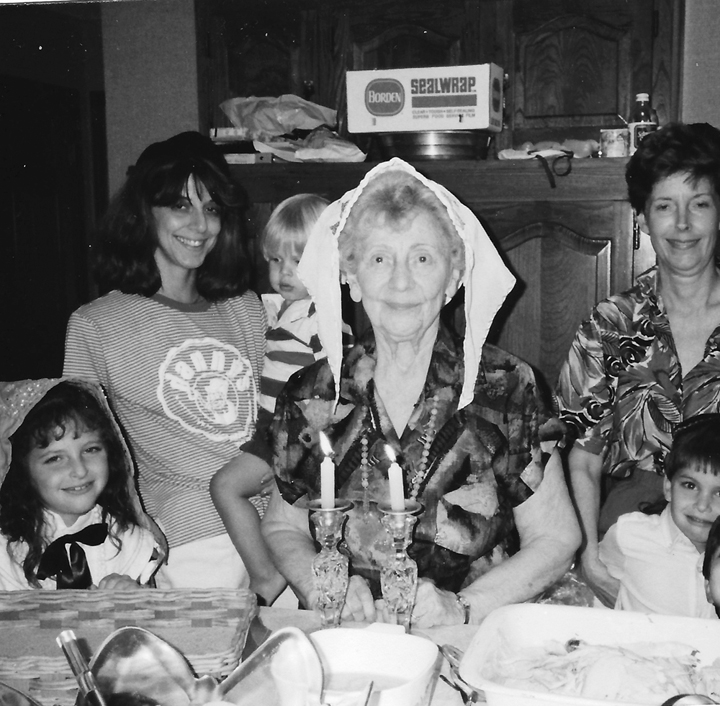
The old order has passed. I have lived a long life, at age 87 with age 90 just over the horizon. Much has changed in my lifetime, most for the better, some for the worse. Typically, at this stage of the game, it is normal to mourn more for the past than to glory in the present. And I do mourn for the past.
I do not recognize today’s world. Was it necessary to destroy what was good in society while making the old order better? Here in the Diaspora, our Jewish world is shrinking. Support for Israel is eroding. Even worse than that, Judaism is eroding. The intermarriage rate for non-Orthodox is a little more than 70 percent, according to a 2013 Pew survey. Do the math. At that rate, the children of millennials will be just about the last generation of a meaningful number of Jews in America.
For at least the past two generations, hand-wringing over this problem has produced nothing. To me, the root cause seems simple, and I certainly have no magic-wand solution. Save for the Orthodox, Judaism is no longer a faith. It is mainly an ethnicity, with synagogues and temples acting more as community centers than places of worship. Without faith, is there really much of a point to the continued existence of Judaism? We want our children and grandchildren to marry Jewish. I am not Orthodox, but it pains me deeply to see the Jewish people vanishing.
If for no other reason, it is a tragedy not just for Jews but for the world to watch this phenomenon unfold. Jews constitute only 0.2 percent of the world’s population, but we have produced over 22 percent of Nobel Prize winners. That is 11,250 percent more than the statistical expectation (Wikipedia). The Jewish population produces geniuses far, far beyond any possible explanation other than that it is a unique gene pool. For it to vanish is a terrible loss for the entire human race.
But just because there now appears to be nothing that can stop this erosion, we still are here, now, and must do what we can in the hope that something will occur tomorrow to change the arc of history. American Jewish support for Israel is eroding. Many of the college students are targeted and constantly harassed in the classrooms by groups like Students For Justice (SFJ) and like-minded faculty members that sponsor BDS (Boycott, Divestment, Sanctions movement) and hate-filled “Israel Apartheid Week.” Unfortunately, these groups are having impact on our children.
Pro-Israel Jews on campus are finally seizing the initiative and starting to fight back. We need to vigorously support them. To get their message out undergraduates at the University of Minnesota launched Students Supporting Israel (SSI). Columbia University students launched “Hebrew Liberation Week” during Israel Apartheid Week this year. To emphasize their point, they wore blue and white kaffiyehs blazoned with Stars of David to symbolize the Jewish connection to Israel. At UCLA they hosted a panel, “Indigenous People Unite,” to provide a platform for Kurdish, Armenian and Jewish students to share their history and aspirations. They have proposed their own resolutions to student government at six universities with four passing. One called for increasing Israel study abroad and three calling for adopting the U.S. State Department definition of anti-Semitism.
These are not the only ones. We must vigorously help them push back against the biased culture in which they find themselves. For example, if your alma mater is complicit in promoting anti-Israel bias, write them that you will no longer provide financial support. It is my hope that these Jewish kids on campus who are encountering first-hand the sort of bias and hatred that we experienced in our time, and are fighting back against it, will come to regard their heritage as worth preserving.
My husband and I are committed to our Jewish heritage and faith. All three of our daughters married Jewish men. All our grandchildren became Bar and Bat Mitzvah. Most went to Israel. Yet it looks like few of our grandchildren will have Jewish mates. So how can Jewish grandparents transmit family traditions and heritage to their interfaith grandchildren and great-grandchildren without alienating the non-Jewish spouse? With great difficulty, admittedly. You can only state firmly and honestly who you are and what you believe. Be sure you ask the non-Jewish spouse permission to share your Jewish heritage with your grandchildren.
Will it make a difference? Only marginally, for sure, but right now it’s about all we can do. A close relationship with your grandchild or great-grandchild will make it possible to bring Jewish tradition and heritage to life for that child. We can serve as role models. We can encourage our grandchildren to attend Jewish schools, Jewish camps, Birthright and to spend time in Israel. Enroll children under age 7 in PJ library where they will receive Jewish books and tapes. Remember, if your own commitment to your Jewish heritage doesn’t ring true, you will not have much chance to share your love for Judaism with your grandchild.
Long ago I cast off my rose-colored glasses. Only about 20 percent of children of interfaith marriages are being raised Jewish (2013 Pew Study of American Jews). Today almost every Jewish family has an interfaith marriage. We can still encourage these children to identify with Judaism. At the very least, this will help these children find more meaning in life.
Sunie Levin, M.Ed., is an educator and the author of two grandparenting books and three books for boomers and seniors. B’nai B’rith Women commissioned her to write ‘Mingled Roots: A Guide For Grandparents of Interfaith Grandchildren.’ UAHC Press republished the book and it is being used in seminars today throughout the country.



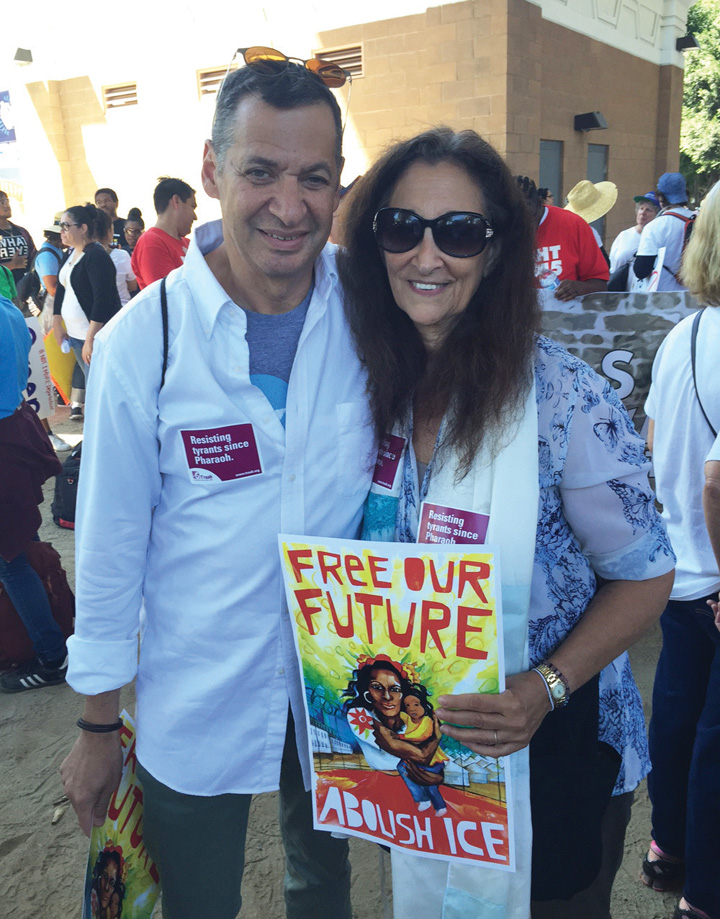
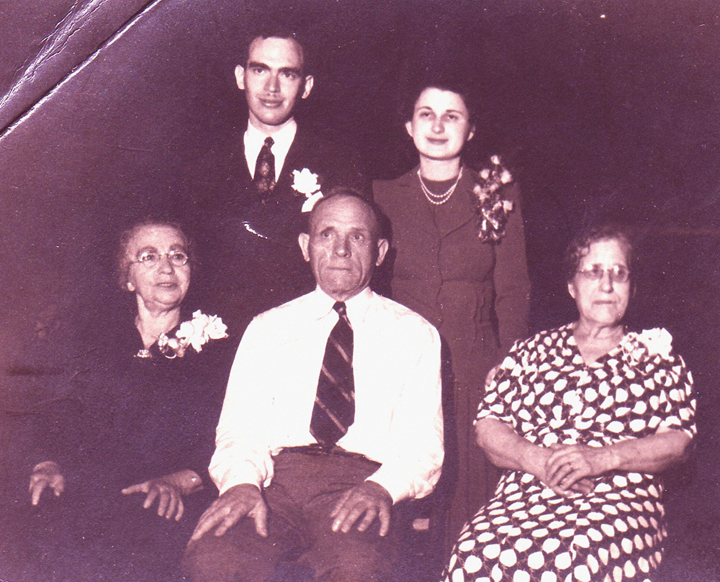

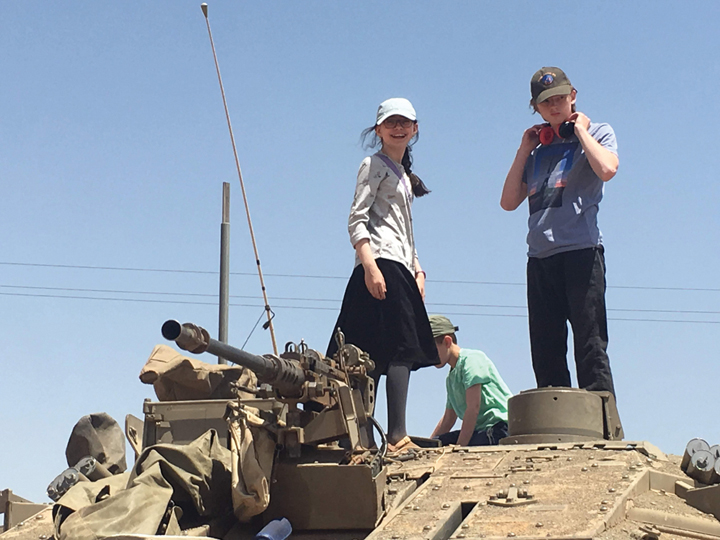
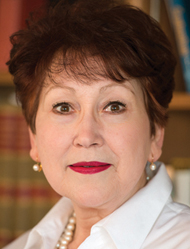 Independence Day is marked by patriotic displays of parades and festivities to honor our nation. We celebrate what American colonists did by joining together to fight against the injustices of their government. We recall that people, who strived together to solve serious problems in American history, created our nation.
Independence Day is marked by patriotic displays of parades and festivities to honor our nation. We celebrate what American colonists did by joining together to fight against the injustices of their government. We recall that people, who strived together to solve serious problems in American history, created our nation.